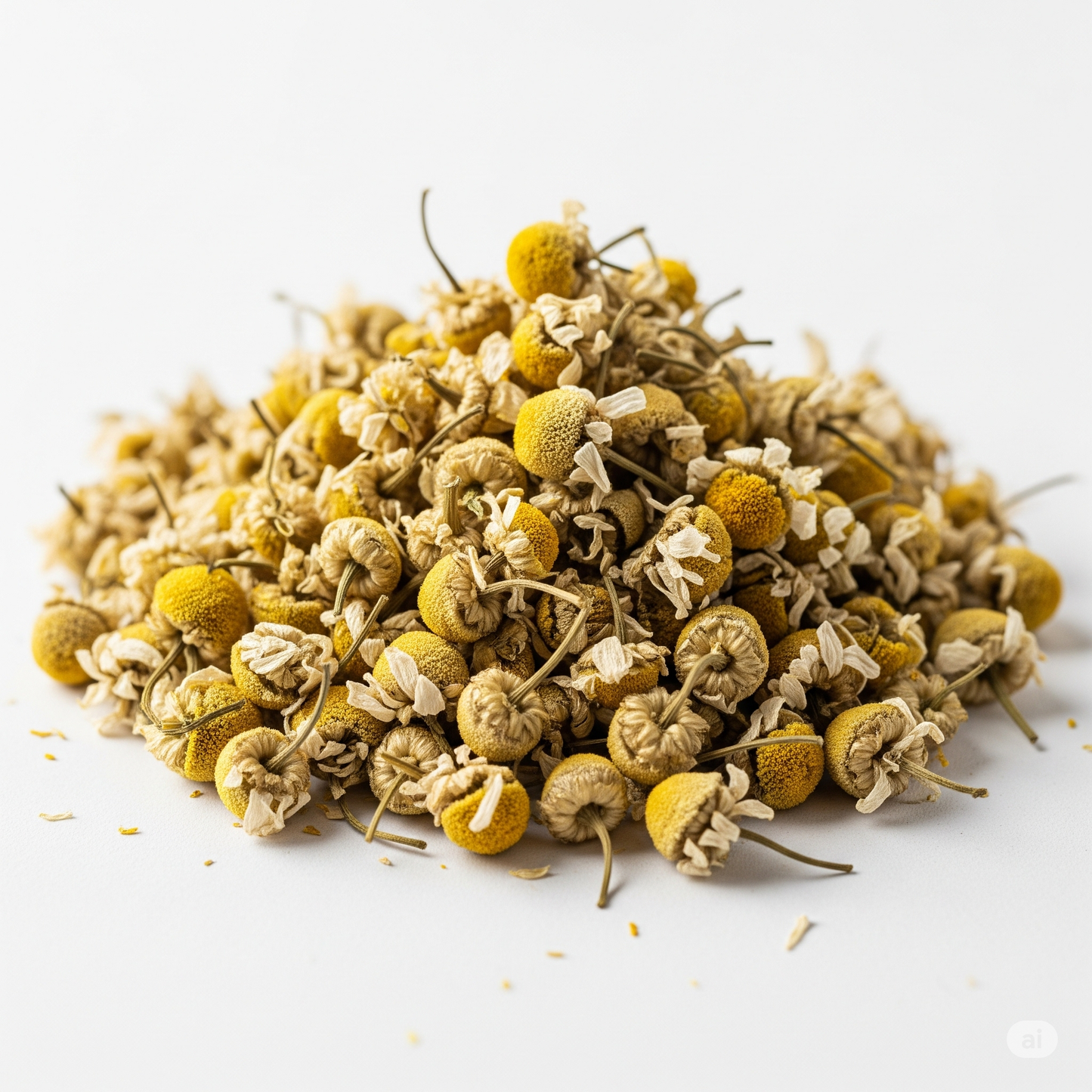Wadi
Chamomile
Chamomile
Couldn't load pickup availability
Primary Uses:
1. Culinary Uses:
- Chamomile tea
- Chamomile-infused honey
- Chamomile syrup
- Chamomile-infused oil
2. Flavoring Uses:
- Chamomile in baked goods (cookies, cakes, etc.)
- Chamomile in salad dressings
- Chamomile in marinades for meat or vegetables
- Chamomile in cocktails or mocktails
3. Aroma Uses:
- Chamomile in potpourri
- Chamomile in sachets for drawers or closets
- Chamomile in candles or wax melts
- Chamomile in bath products (bath bombs, salts, etc.)
Other Uses:
1. Medicinal uses: Chamomile is commonly used as a natural remedy for anxiety, insomnia, digestive issues, and skin conditions such as eczema and psoriasis.
2. Religious uses: Chamomile has been used in various religious ceremonies and rituals throughout history, particularly in ancient Egyptian and Greek cultures.
3. Ornamental uses: Chamomile is often grown as an ornamental plant in gardens and landscapes due to its delicate white flowers and pleasant fragrance.
4. Insect repellent: Chamomile has natural insect-repelling properties and can be used as a natural alternative to chemical insecticides.
5. Dyeing agent: Chamomile can be used as a natural dyeing agent to create a range of yellow and green hues.
6. Folklore uses: Chamomile has been associated with various folklore beliefs and superstitions, such as its ability to bring good luck and ward off evil spirits.
7. Culinary garnish: Chamomile flowers can be used as a garnish in salads, desserts, and other culinary dishes to add a subtle floral flavor.
Caution:
1. Allergic reactions: Chamomile can cause allergic reactions in some people, especially those who are allergic to plants in the daisy family.
2. Drowsiness: Chamomile can cause drowsiness and sedation, which can be dangerous if you need to be alert and focused.
3. Interactions with medications: Chamomile can interact with certain medications, including blood thinners, sedatives, and antidepressants.
4. Nausea and vomiting: Some people may experience nausea and vomiting after consuming chamomile.
5. Skin irritation: Chamomile can cause skin irritation in some people, especially those with sensitive skin.
6. Pregnancy and breastfeeding: Chamomile is not recommended for pregnant or breastfeeding women, as it may cause uterine contractions and harm the baby.
7. Blood pressure: Chamomile may lower blood pressure, which can be dangerous for people with low blood pressure or those taking medications to lower their blood pressure.
Share


